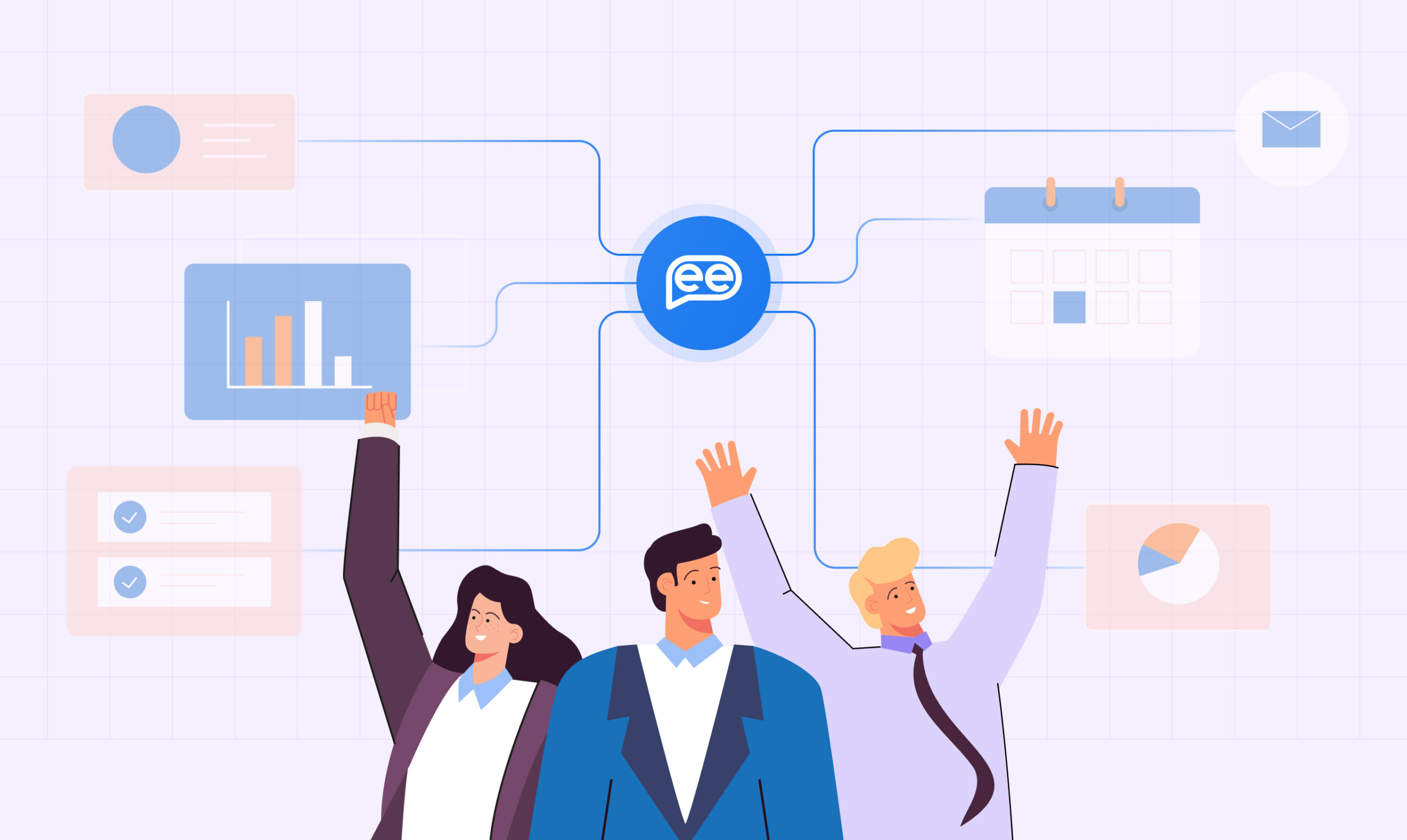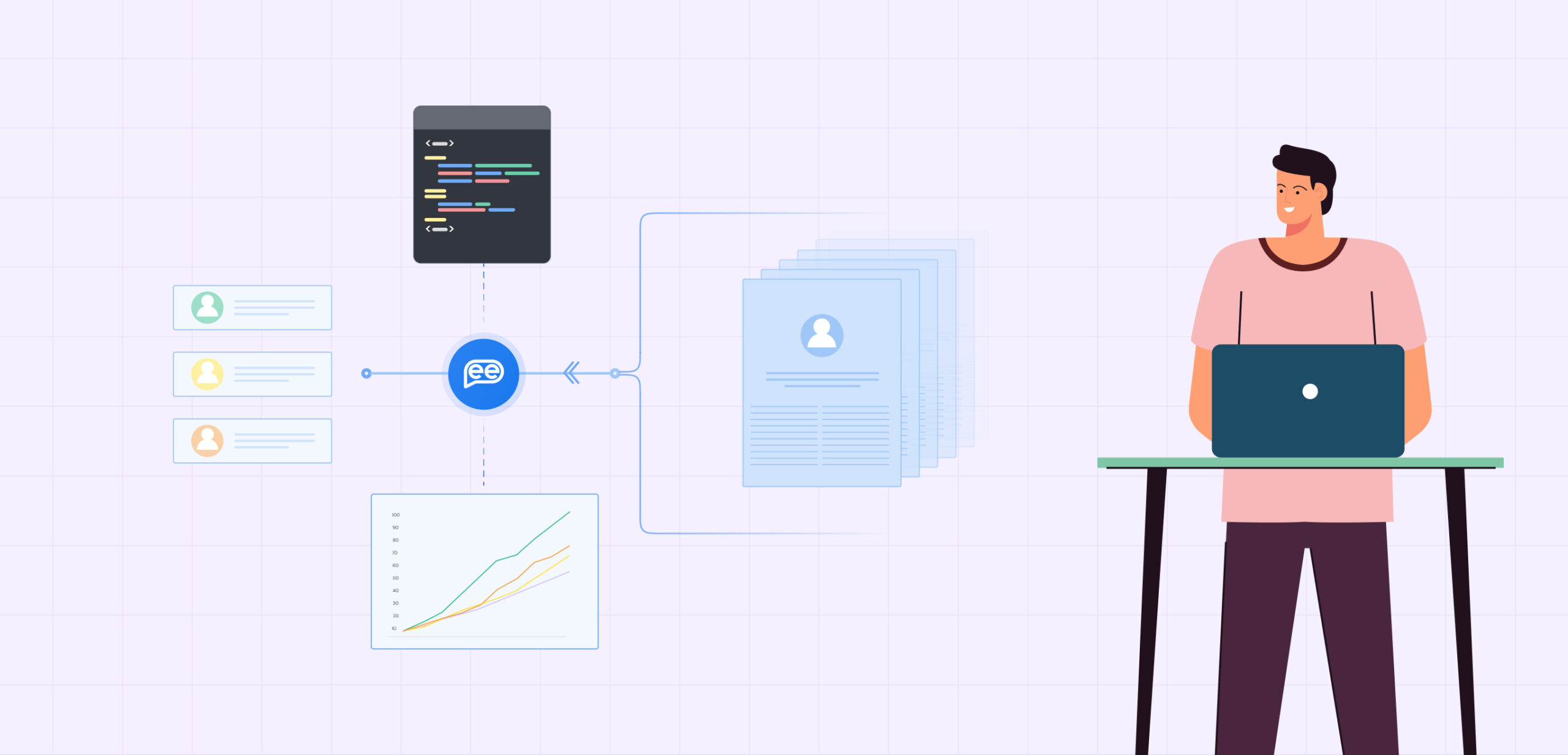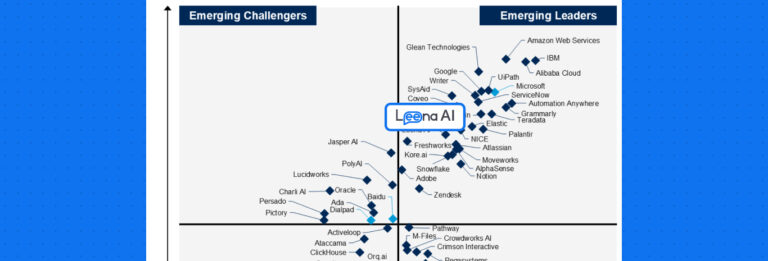In today’s rapidly evolving business environment, staying ahead of the curve is crucial, and Generative AI is emerging as a game-changer. From automating routine tasks to creating entirely new products and services, Generative AI has enabled businesses to innovate, increase efficiency, and improve their bottom line.
Technology is transforming the way organizations operate, and employee experience is no exception. Generative AI has opened up new possibilities for employers and employees alike, streamlining processes, enhancing productivity, and creating a more personalized and engaging experience for the workforce.

With so much happening in the HR technology landscape, it is often the CIO’s who have to take up the mantle to drive digital transformation to enhance their organization’s competitiveness.
As a CIO, understanding the potential of Generative AI and how it can be harnessed to drive innovation and create value is essential.
Generative AI is, significantly and somewhat permanently, revolutionizing how companies operate and interact with their employees. From HR service delivery to employee engagement, IT service delivery, and overall employee experience, Generative AI is empowering enterprises to streamline their operations, reduce costs, and improve productivity, through automation.
Generative AI has a wide range of use cases and applications in various aspects of employee experience. Here are a few use cases where Generative AI is making a significant impact:
 HR Service Delivery:
HR Service Delivery:
Generative AI can automate tasks such as answering common employee queries, creating job descriptions, shortlisting resumes, managing employee data and documents. This enables HR personnel to provide employees with quick and accurate solutions, leading to improved HR service delivery and employee satisfaction. It also frees up HR time to focus on more strategic initiatives.
 Employee Engagement:
Employee Engagement:
Generative AI can help organizations create personalized and engaging employee experiences by generating bespoke content, recommendations, and exercises based on individual employee preferences and interests. For example, it can create personalized learning paths, suggest relevant training programs, and generate content for internal communication and engagement initiatives.
 Onboarding – Offboarding:
Onboarding – Offboarding:
Generative AI can streamline the onboarding and offboarding processes by automating tasks such as generating necessary documents, ensuring compliance checks, and streamlining IT resources. This can result in a seamless and consistent experience for new hires and departing employees, reducing administrative overhead and ensuring compliance with company policies.
 IT Service Delivery:
IT Service Delivery:
Generative AI can improve IT service delivery by automating tasks such as troubleshooting, ticket management, access issues and system/software updates. It can also generate self-help guides, knowledge base articles, and training materials for employees, reducing the reliance on IT teams and empowering employees to self-serve.
 Employee Development:
Employee Development:
Generative AI can support employee development by recommending personalized learning paths, training programs, and recommendations based on individual skills, interests, and career goals. This can enable employees to acquire new skills, and explore new career paths, leading to increased employee satisfaction and retention.
While Generative AI is revolutionizing the employee experience by automating tasks, personalizing content, providing data-driven insights, and fostering innovation, organizations should be aware of the ethical concerns and technical limitations associated with Generative AI and proactively address them in their implementation strategies.
“Generative AI has allowed me to leverage its technology to enhance organizational operations. Some of the advantages that Generative AI provides include faster decision-making, improved accuracy, greater customer satisfaction, increased cost savings, and increased efficiency. These advantages are balanced by some challenges like privacy concerns or data security issues which must be addressed before using Generative AI tools in our organization. One of the use cases for Generative AI is natural language processing which can be used to offer personalized experiences in an automated way through chatbots or virtual agents.”
Managing Risks, Technical Limitations, and Ethical Considerations
While the potential for innovation and creativity is immense, Generative AI models are not perfect and may have limitations in terms of accuracy, reliability, and scalability. Organizations should be aware of these limitations and set appropriate expectations when implementing Generative AI solutions in their employee experience strategies. Regular monitoring and updates may be required to ensure responsible use and optimal performance.
 Data Privacy:
Data Privacy:
Generative AI models require large datasets for training, which may include sensitive and private data. Organizations need to take specific measures, such as anonymizing the data, securing it with encryption, and implementing access controls to prevent unauthorized access, to protect the privacy of the data used and collected in training the Generative AI model in accordance with relevant data protection laws and regulations.
 Model Deployment:
Model Deployment:
Deploying Generative AI models involves integrating them into applications, systems, or services. It’s important to do this deployment in a secure and controlled manner. Some of the best practices for securing the model deployment process are: implementing authentication and authorization controls, encrypting communication channels, and regularly updating and patching the deployed models to address any latent security vulnerabilities.
 Scalability:
Scalability:
Generative AI models require significant resources for training. To scale up the Generative AI processes, organizations also need to consider the scalability of the infrastructure to handle the increased computational demands. This includes evaluating the capacity, performance, and cost implications of scaling up the Generative AI processes and ensuring that the infrastructure is optimized for efficient and effective use.
 Change Management:
Change Management:
Introducing Generative AI in the employee experience may require changes in processes, workflows, and employee behaviors. Change management efforts may be needed to ensure smooth adoption of Generative AI solutions by employees and stakeholders. Proper communication, training, and support should be provided to employees to address any concerns or resistance to change.
 Potential Biases:
Potential Biases:
Generative AI models learn from large datasets, which may contain biases. These biases can be inherited by the generated content, leading to potential biases in the output as well. It’s important to keep a lookout for these biases and take steps to mitigate them, including carefully curating the training data, conducting bias audits, and implementing techniques such as fairness-related interventions, and adversarial training.
 Ethical Implications:
Ethical Implications:
Generative AI can also raise serious ethical concerns, such as the potential for misuse or abuse of technology, creation of fake or misleading content, and impact on human creativity and labor. Organizations should develop policies and guidelines for responsible use. This includes being transparent about the use of Generative AI, obtaining informed consent from users, and ensuring that the generated content is used in compliance with legal and ethical standards.
 Mitigating Risks:
Mitigating Risks:
To mitigate the risks associated with Generative AI,organizations can conduct thorough risk assessments, implement robust security measures, be transparent about the limitations of Generative AI, monitor and audit the generated content, and continuously evaluate the model’s performance for potential biases or ethical concerns. It’s also important to establish clear governance and accountability mechanisms for the use of Generative AI within the organization.
 Responsible Use:
Responsible Use:
Responsible use of Generative AI involves being mindful of the potential impacts and consequences of the generated content. Organizations should use Generative AI in ways that align with their values, ethics, and the best interests of their users and stakeholders. This includes being transparent about the use of Generative AI, ensuring that the generated content is used for legitimate purposes, and taking steps to mitigate potential biases, risks, and ethical concerns.
“CIOs are eager to take advantage of Generative AI’s promise and something they want their ISVs and applications to have in their roadmaps, but they are cautious particularly in the area of data compliance and privacy. They are also weary of the skills needed, and the potential cost of developing and training language models in house.”
Unlocking the Power of Generative AI: Why CIOs Should Embrace the Future
The business landscape is constantly evolving, and staying ahead of the curve is crucial for success. Generative AI is poised to play a pivotal role in the future of work, and organizations that embrace this technology early on can gain a competitive edge. By adopting Generative AI in internal employee processes, CIOs can future-proof their organizations and ensure they are well-equipped to navigate the changing landscape of work.

If you are at the forefront of driving digital transformation in your organization, here’s why CIO’s should consider incorporating Generative AI into your internal employee processes right now:
 Enhanced Personalization:
Enhanced Personalization:
Generative AI enables organizations to personalize the employee experience by providing customized content, recommendations, and services based on individual preferences, interests, and needs.
 Increased Efficiency:
Increased Efficiency:
Generative AI automates repetitive and mundane tasks, such as data entry, document generation, and content creation, freeing up HR and IT personnel to focus on more strategic and value-added activities.
 Improved Decision-making:
Improved Decision-making:
Generative AI provides data-driven insights and recommendations, helping enterprises make informed decisions related to talent management, employee engagement strategies, and other employee-facing processes.
 Foster Innovation:
Foster Innovation:
Generative AI promotes innovation by generating new ideas, designs, and solutions that can inspire employees and spark creativity. It can be used in areas such as product design, marketing campaigns, and content creation.
In Conclusion,
Generative AI has the potential to bring about internal efficiency, which, in turn, translates into improved customer experiences, competitive advantage, and an enhanced reputation, which are vital for external success.
Organizations that operate with high internal efficiency are more agile, responsive, and adaptable. They can quickly respond to customer needs, adapt to industry trends, and seize new business opportunities. This gives them a competitive edge over their peers and positions them as leaders in their industry.
Investing in Generative AI can create a ripple effect throughout the organization, driving overall efficiency and success in today’s digital world.
Employee experience has the potential to transform the way employees work, communicate, and learn. Generative AI can help businesses create a more engaged, satisfied, and productive workforce, leading to better business outcomes, and that is something every CIO should care about.






